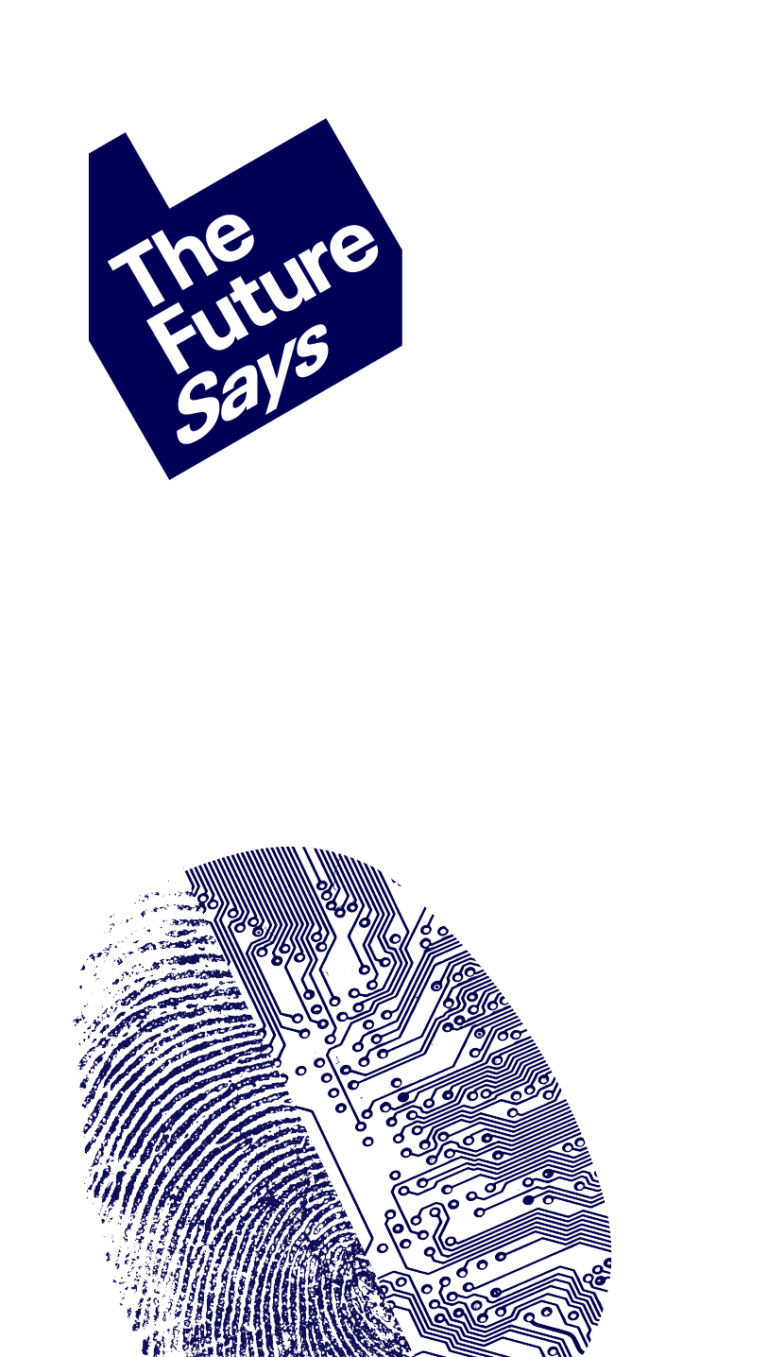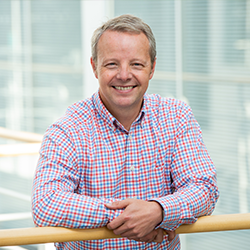

The Future Says make AI part of the answer
Surrey Institute for People-Centred AI
Artificial intelligence (AI) has the potential to solve the big global challenges. Our new interdisciplinary hub puts individuals and society at the heart of that.
What’s the problem?

Machine learning systems that act independently of human control by sensing, reasoning and adapting to a situation or environment were once a sci-fi dream. Advances in AI, however, mean these are now a reality in finance, media, manufacturing, warehouses, drones and autonomous vehicles.
But adapting and adopting this new technology is not without its issues. There are many misconceptions about AI.
At Surrey, we’re working to ensure people embrace this powerful tool by understanding that AI seeks to augment human capability, empowering people to live and work to the best of their abilities, while enriching quality of life.
AI is an enabler – it widens access, freeing us up to be more creative, and use the intellectual and emotional skills that make each of us unique. The potential good of AI is infinite – and that’s where our new Institute comes in.
What we’re trying to do
“One of the defining characteristics of our research is that it’s grounded in real-world problems,” says Professor Adrian Hilton, founding Director of our new Institute. “For years, the focus has been on learning how to build AI effectively and to engineer tools for specific purposes. It’s time we turn the tables and lead AI research from the human perspective, rather than a purely technological one.”
People-Centred AI is Surrey’s first pan-University research hub, building on the work of the University’s Centre for Vision, Speech and Signal Processing (CVSSP), which has conducted world-leading research in machine perception and fundamental AI for over 30 years. The Institute brings together experts from disciplines across our faculties of social, health and engineering sciences.
Our vision is inspired by UN Sustainable Development Goals and will focus on six grand challenges:
Who’s involved?
The fast-moving world of AI has many stakeholders, from government institutions to major industry AI labs, from citizens’ rights groups to regional development agencies. Our approach is to engage with these organisations to inform our strategy, research and teaching priorities, maximising the impact and longevity of the Institute’s work.
The University has a proud track record of working with partners in industry, government and the public sector. We leverage these relationships to achieve research breakthroughs that make a difference to society.
- In the field of health care: AI promises to revolutionise diagnosis and treatment through data analysis and smart devices. Academics at Surrey are exploring the link between people with dementia and their sleep patterns as a key predictor of cognitive decline
- In entertainment: We are enabling educational tools that are tailored to the way individuals learn. A five-year ‘Prosperity Partnership’ has seen Surrey team up with the BBC to develop technologies to enable storytelling and news content to adapt based on users’ individual interests, location, devices and accessibility needs.
- In Human:Machine interaction: Our academics are working to make information more accessible, exploring the potential of AI to provide audio descriptions for visual content currently not accessible to visually impaired people. We have also successfully pioneered the world’s first AI capable of live sign language translation.

Professor Adrian Hilton
Alongside his role as Director of our new Institute, Professor Hilton is the Director of the internationally acclaimed CVSSP.
In 2018, he was awarded the prestigious Institute of Engineering and Technology Achievement Medal for his outstanding and sustained contribution in the field of computer vision engineering.
Why we need your help
Surrey is to embed understanding of AI and data science into educational programmes across the University. The Institute is dedicated to the education, training and upskilling of people across industry and the public sector to use and understand the impact of AI on society and the economy. In this respect, the Oxford Economics group suggest systems involving AI could add $4.9 trillion per year to the global economy by 2030.
The University is continually developing to bring together a visionary future. Our collaborations touch on many different worlds, forming the bigger picture.
Together, we can make AI work with people to ensure that it is inclusive, transparent, ethical and safe, benefiting everyone in society. This means we need to attract the best at all levels to ensure a diverse and inclusive research culture and establish Surrey as a global leader in People-Centred AI.

Our approach drives our research and enables us to design AI technologies and systems which are ethical, responsible and inclusive. And this is what a fairer future will need.